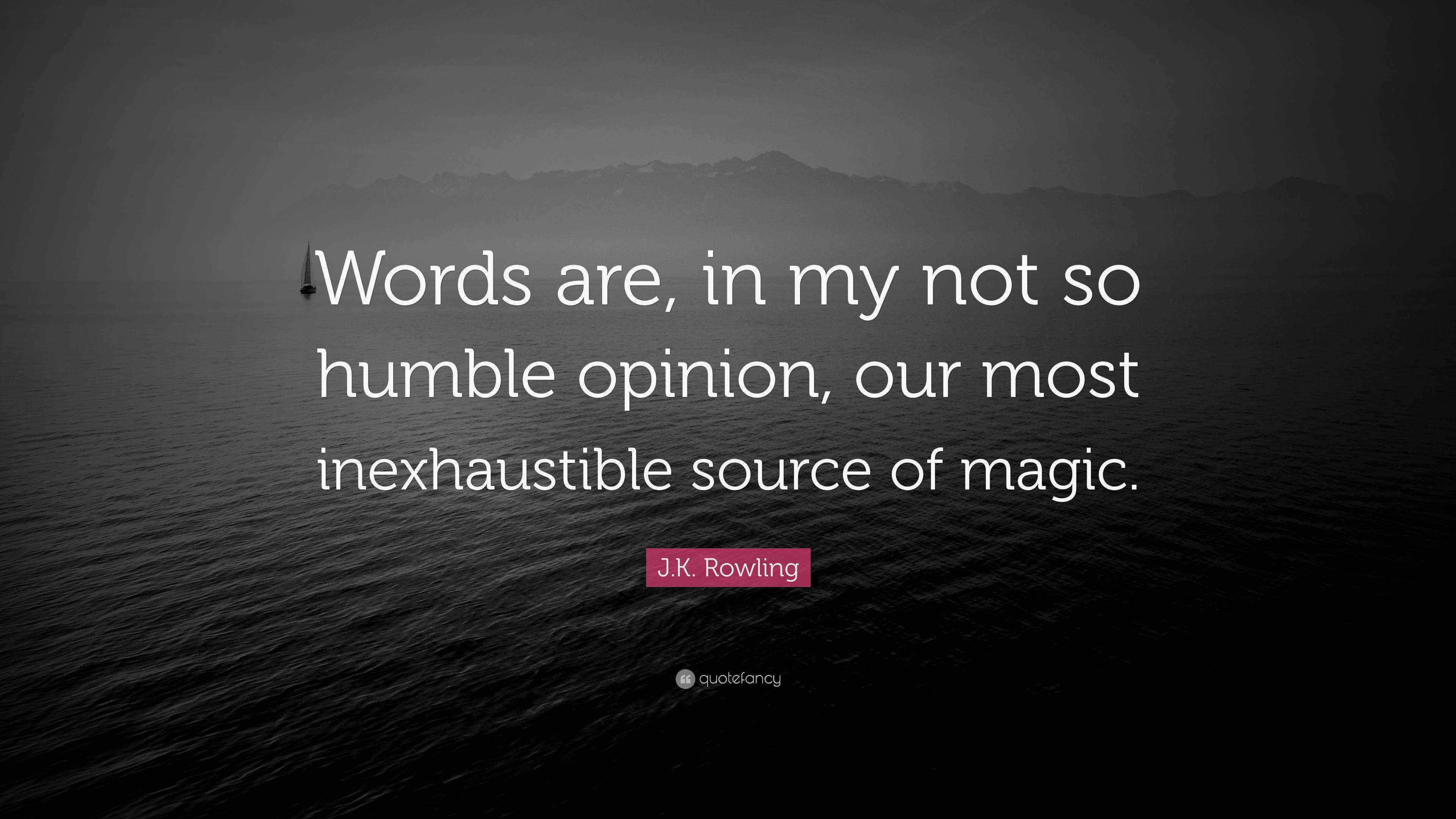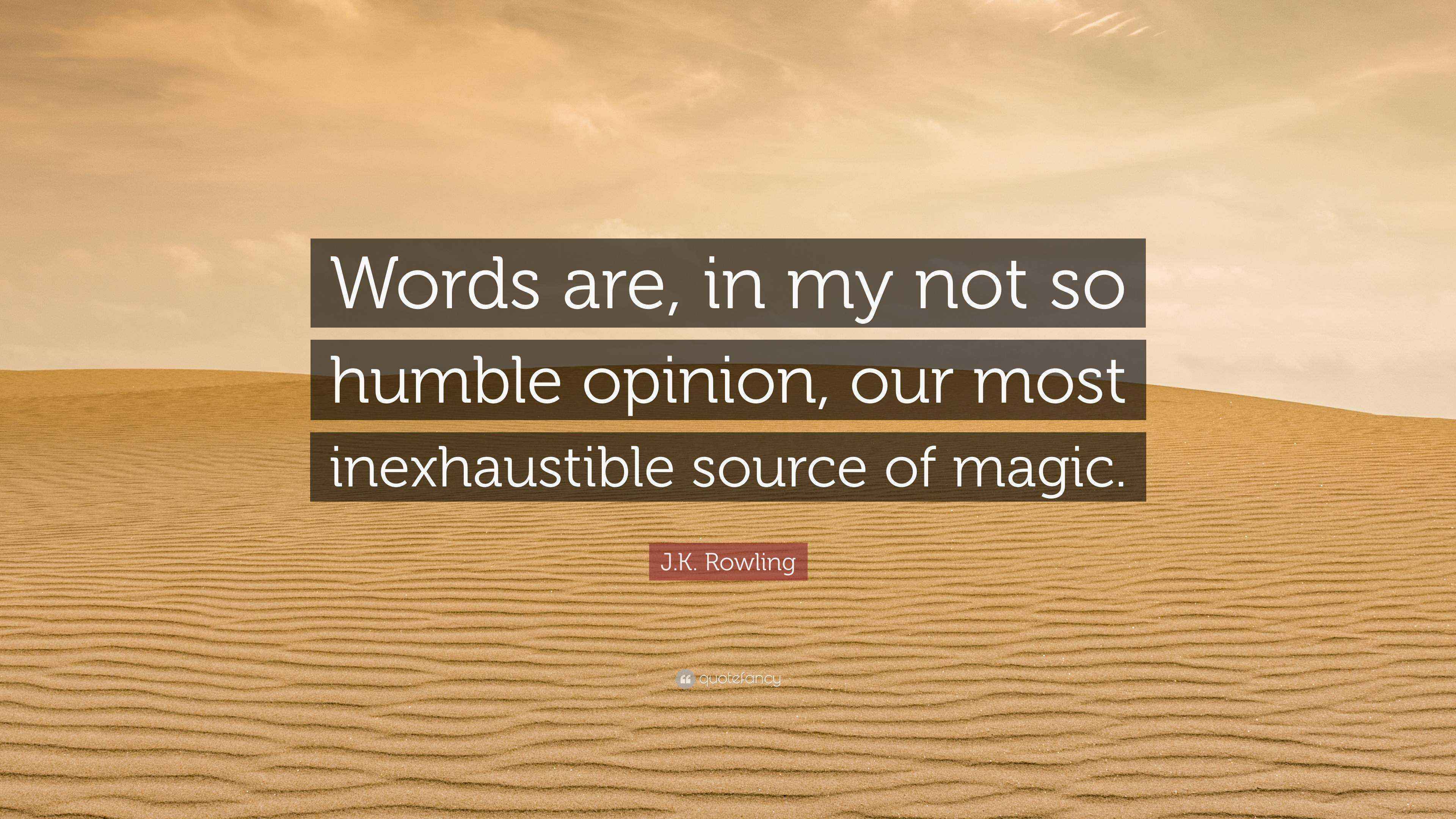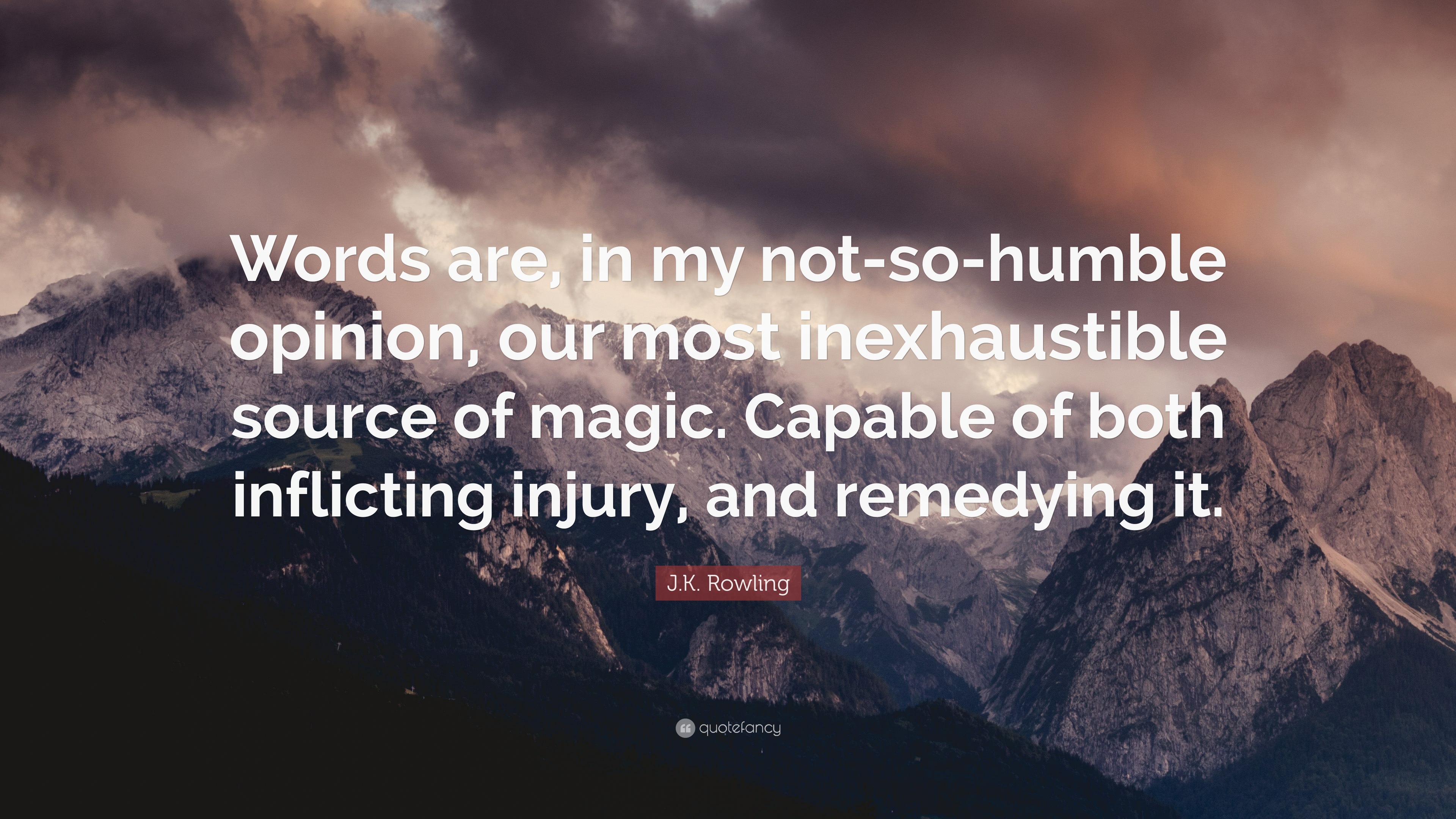Have you ever stopped to truly think about the incredible weight and wonder of words? It's really something, isn't it? For me, and this is just my take, words are in my not so humble opinion, the very fabric of how we make sense of the world, how we share what's inside our heads, and how we connect with others. They're not just sounds or symbols; they carry feelings, ideas, and even the smallest details of our daily experiences.
Think about it for a moment, and you'll see how a single word can shift a whole conversation, or how a carefully chosen phrase can paint a vivid picture in someone's mind. They hold so much sway, so much quiet authority, in how we understand complex things or even simple instructions. It’s almost like they have a life of their own, wouldn't you say? So, getting them just right, or at least trying to, is a pretty big deal.
This idea of words holding such a significant place isn't just a personal feeling; it shows up in so many parts of our lives, from how we talk about our health to how we solve a little puzzle. It's about how we put things together, how we express what we know, and how we learn from what others share. Today, we'll explore why words truly matter, and how their precise use can make all the difference, especially when you're trying to get a point across, you know?
Table of Contents
- The Weight of Language: Why Words Truly Matter
- Words in Action: From Health Insights to Everyday Puzzles
- Crafting Your Message: Making Your Words Count
- Frequently Asked Questions About Words and Their Impact
The Weight of Language: Why Words Truly Matter
When we talk about "words are in my not so humble opinion quote," it really gets to the heart of how we perceive and share information. Words are, quite simply, the building blocks of thought. They allow us to categorize, to compare, and to express even the most fleeting sensations. Without them, our internal world would be a jumble, and our ability to interact with others would be severely limited, you know?
Think about how often we rely on words to convey something important. From a simple "hello" to a detailed explanation of a complex process, each word carries a piece of our intention. This is why, in some respects, choosing them carefully isn't just a nicety; it's a necessity for effective interaction. The words we pick shape the listener's understanding, and they can either build bridges or create walls between people, that's just how it is.
The significance of language also shows up in how we learn and grow. Every piece of knowledge we gain, every new idea we encounter, is typically wrapped in words. They are the vessels for wisdom passed down through generations, and the tools we use to explore new frontiers. So, it's pretty clear that understanding their impact is a crucial step in communicating more effectively, or so it seems.
The Power of Precision in Communication
Precision in language is, in my view, incredibly important. It’s about picking the exact word that captures the meaning you want to get across, without any extra fuss or confusion. When we use words precisely, we reduce the chances of misunderstandings, and we make our message much clearer for anyone listening or reading. This is especially true when dealing with detailed or sensitive topics, which, honestly, come up more often than you might think.
Consider, for instance, how different fields rely on very specific language. A scientist uses technical terms to describe findings, ensuring that other scientists can replicate experiments or understand theories without ambiguity. A lawyer crafts legal documents with extreme care, because every single word can have significant consequences. This shows that the clearer you are with your words, the better your message will be received and acted upon, wouldn't you agree?
This focus on precise language isn't just for formal settings, though. It applies to our daily chats, too. When you describe an experience, choosing vivid, accurate words helps your listener truly picture what happened. It makes your stories more engaging and your explanations more helpful. So, giving a little thought to the words you use can really make a big difference in how well you connect with others, at the end of the day.
Words as Tools for Clarity and Connection
Words are, in a very real sense, our primary tools for achieving clarity. They allow us to take abstract thoughts and turn them into something tangible that others can grasp. When we speak or write clearly, we're essentially guiding our audience through our thought process, helping them follow along and arrive at the same understanding we have. This makes communication so much more effective, and, you know, a lot less frustrating for everyone involved.
Beyond just clarity, words are also fundamental for building connections. When we use language that resonates with others, we create a sense of shared understanding and empathy. It’s like finding common ground through the way we express ourselves. This can be as simple as using a familiar phrase that makes someone feel comfortable, or as complex as articulating a shared value that brings people together for a common cause, pretty much.
Moreover, the way we use words can convey respect, warmth, or even humor, all of which are vital for strong relationships. A kind word can brighten someone's day, and a well-placed joke can lighten the mood. So, it's pretty obvious that our choice of words goes far beyond just conveying facts; they help us build and maintain the human bonds that are so important in life, don't you think?
Words in Action: From Health Insights to Everyday Puzzles
To truly appreciate how "words are in my not so humble opinion quote" plays out, let's look at some real-world examples where the specific choice of words makes a huge impact. From understanding a medical condition to solving a word game, the precision and context of language are everything. It shows us, quite clearly, how powerful these small units of meaning truly are, you know?
Consider the information we process daily. Whether it's a news report, a set of instructions, or a conversation with a friend, the words used shape our perception and response. This is why, arguably, clarity isn't just a good idea; it's often essential for our well-being and for navigating the world around us. So, paying attention to how things are phrased can really change how you understand them, right?
The examples below illustrate this point beautifully, showing how different contexts demand different kinds of linguistic precision. It's fascinating to see how the same basic building blocks – words – can be used in such varied ways to achieve very specific outcomes. This is, basically, what makes language so rich and interesting, don't you agree?
Describing Discomfort: The Case of Cervicogenic Headaches
When it comes to health, words become incredibly important. Knowing the exact terms for symptoms and conditions helps doctors diagnose and treat problems effectively, and it helps patients understand what's happening to them. For example, my text shares detailed information about a specific type of head pain: "A cervicogenic headache is one that begins in the neck, but a person feels it in the head." This particular phrasing is very precise, as a matter of fact, distinguishing it from other types of headaches.
The text further explains, "But you won’t have additional symptoms common with a migraine, like light sensitivity, sound sensitivity." This distinction, made through specific words, is vital. It tells you what a cervicogenic headache *isn't*, which helps narrow down the possibilities. It also notes, "The pain of cervicogenic headache is referred from the spine and usually has an underlying cause." This particular phrase clarifies the origin of the pain, which is crucial for treatment. These are all examples of words used to create very clear boundaries around a medical issue, don't you think?
The text also mentions, "A cervicogenic headache presents as unilateral pain that starts in the neck and is referred from bony structures or soft tissues of the neck." This description, with terms like "unilateral pain" and "referred from bony structures," leaves little room for misinterpretation. It truly highlights why precise language in medicine is not just helpful, but absolutely necessary for accurate diagnosis and care. Learn more about headaches on our site.
Cracking Codes: The Language of Puzzles
On a completely different note, consider the world of puzzles, like "7 Little Words." Here, words are used in a playful yet equally precise way. The clues are designed to guide you without giving away the answer too easily. For instance, my text lists clues like "Small peak 7 little words which contains 9 letters" or "What a pluviometer measures 7 little words which contains 8 letters." These are very specific, yet they require you to think about the words in a certain way, you know?
Each clue in such a game is a mini-masterpiece of linguistic craft. "The b in bedmas 7 little words which contains 8 letters" is another example. It's not just about knowing the answer; it's about understanding the subtle hints and the way the words are put together. The game relies on your ability to interpret phrases, to connect seemingly unrelated concepts through the power of language. It's pretty fascinating, actually, how they manage to do that.
The phrasing of these clues shows that even in entertainment, the words chosen are incredibly important. They create the challenge and the satisfaction of solving the puzzle. Whether it's "Act of copying 7 little words which contains 11 letters" or "Moaning and groaning 7 little words which contains 7 letters," each phrase is carefully selected to evoke a particular idea, making the game engaging and fun. So, it's clear that words, in my not so humble opinion, are just as vital for play as they are for serious matters, really.
Crafting Your Message: Making Your Words Count
Given how much words shape our understanding and connections, it's worth thinking about how we can all use them more effectively. It's not about being a poet or a public speaker; it's about making sure your message lands just right, every time. This is a skill that, with a little practice, anyone can get better at, and it pays off in so many ways, don't you think?
The idea that "words are in my not so humble opinion quote" implies a certain care and consideration for language. It suggests that we should treat our words as valuable tools, rather than just throwing them out there without much thought. By doing so, we can improve our relationships, avoid misunderstandings, and generally communicate more powerfully. So, let's look at a few ways to really make your words count, okay?
It's about being intentional. When you're talking or writing, just take a moment to consider what you want to say and how you want to say it. This small pause can make a huge difference in the clarity and impact of your message. It's a simple habit that can lead to much better communication, pretty much across the board.
Choosing the Right Words for Impact
Picking the right words means thinking about your audience and the situation. What words will they understand best? What tone do you want to convey? Sometimes, a simple, direct word is best, while other times, a more descriptive or evocative term might be more suitable. It's about finding that sweet spot where your message is both clear and impactful, you know?
For example, if you're explaining something complicated, using plain language and avoiding jargon can make a world of difference. If you're trying to inspire someone, words that convey enthusiasm and hope will be more effective. The key is to be mindful of the effect your words will have, and to choose them accordingly. This careful selection can truly elevate your communication, as a matter of fact.
Think about how different words can evoke different feelings. Saying "I'm upset" is different from saying "I feel a deep sense of disappointment." Both convey negative emotion, but the latter is more specific and perhaps more relatable. So, taking a moment to choose words that truly reflect your meaning can make your communication much richer and more effective, honestly.
The Art of Articulation: Speaking Your Mind Clearly
Articulation isn't just about speaking clearly; it's about organizing your thoughts so they come out in a logical and easy-to-follow way. It means presenting your ideas step by step, making sure each part of your message builds on the last. This helps your audience grasp what you're saying without getting lost or confused, which is, basically, the whole point of communicating, right?
One way to improve articulation is to practice. Try explaining a complex idea to a friend, or summarize a book you've read. The more you practice putting your thoughts into coherent sentences, the better you'll become at it. It's like any other skill; the more you use it, the stronger it gets. So, don't be afraid to try out different ways of saying things, you know?
Another helpful tip is to listen actively to how others articulate their thoughts. Notice what makes their explanations clear or confusing. This can give you insights into your own communication style. Remember, the goal is to express yourself in a way that truly connects with others, making your "not so humble opinion" heard and understood. For more insights on effective communication, you can check out resources like Psychology Today's articles on communication. Also, learn more about effective speaking on our site.
Frequently Asked Questions About Words and Their Impact
What does it mean for words to be "in my not so humble opinion"?
When someone says "words are in my not so humble opinion," it means they have a very strong, firm belief about the importance or nature of words. They're not just offering a casual thought; they truly believe that words hold significant power and impact. It suggests a conviction that language isn't just a tool, but a fundamental force in how we think and interact, you know?
How can precise language help avoid misunderstandings?
Precise language helps avoid misunderstandings by leaving less room for interpretation. When you use specific terms and clear phrasing, you make your message less ambiguous. This means the person listening or reading is more likely to understand exactly what you mean, rather than having to guess or make assumptions. It's about being very clear with your intent, so there's less chance of things getting mixed up, pretty much.
Why are words considered powerful tools for connection?
Words are considered powerful tools for connection because they allow us to share our inner world, express empathy, and build shared experiences. By choosing words that resonate with others, we can create a sense of understanding and rapport. This helps build trust and strengthens relationships, whether it's through a heartfelt conversation or a shared laugh over a well-told story. They really do bring people closer, don't they?



